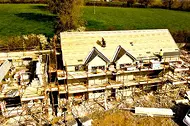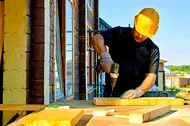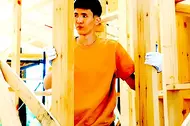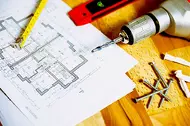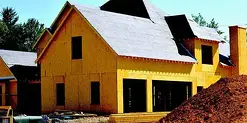Should I Build or Buy a Home in New Zealand? The Ultimate Guide for Kiwi Homeowners
 By
Trent Bradley
·
7 minute read
By
Trent Bradley
·
7 minute read

Making the decision between building a new home or purchasing an existing property is one of the biggest choices you'll face as a prospective homeowner in New Zealand. With the current state of the housing market, rising construction costs, and evolving lifestyle needs, this decision has become more complex than ever.
Table of Contents
- The Current New Zealand Housing Landscape
- Financial Considerations: Build vs Buy House NZ
- Lifestyle and Personal Factors
- Regional Considerations Across New Zealand
- Making Your Decision: Key Questions to Ask
- The Role of Professional Guidance
- Related Reading: Construction Financing Guide
- Frequently Asked Questions
- Next Steps
Key Takeaways
- Building a home typically takes 6-18 months while buying settles in 6-12 weeks, making timeline your first decision filter
- New builds require more upfront capital for land, consents, and construction but offer 10-year warranties and lower maintenance costs
- Auckland land prices consume larger portions of build budgets, while regional centres offer more affordable building opportunities
- Customisation is building's primary advantage—design for specific needs, accessibility, and future family growth from the ground up
- Construction-to-permanent loans structure differently than standard mortgages, requiring specialised financial guidance
- Existing homes in established suburbs offer location certainty but may need $20,000-$100,000+ in immediate upgrades for modern standards
Whether you're a first-home buyer in Auckland, a growing family in Wellington, or someone looking to downsize in Christchurch, understanding the key factors that influence the build vs buy decision will help you make the choice that's right for your circumstances.
The Current New Zealand Housing Landscape
New Zealand's housing market has experienced significant shifts in recent years. Property prices have fluctuated across different regions, building costs have risen due to material shortages and labour constraints, and interest rates have impacted borrowing capacity. These factors make it crucial to carefully evaluate whether building or buying aligns with your financial goals and timeline.
The construction industry has also evolved, with new building technologies, sustainable materials, and modern design approaches offering exciting possibilities for those considering a build. Meanwhile, the existing housing stock varies dramatically in quality, location, and price across the country.
Financial Considerations: Build vs Buy House NZ
Upfront Costs and Budget Planning
When comparing building versus buying in New Zealand, the initial financial outlay differs significantly between the two options.
Building a New Home:
- Land purchase (if not already owned)
- Construction loan setup and fees
- Council consents and building permits
- Site preparation and services connection
- Construction costs (materials, labour, project management)
- Professional fees (architect, engineer, surveyor)
Buying an Existing Home:
- Purchase price
- Legal fees and building inspections
- Moving costs
- Immediate renovation or repair needs
- Mortgage setup fees
While building often requires more upfront capital and complex financing through construction-to-permanent loans, it can provide better long-term value in many situations.
Long-term Investment Potential
The investment outlook for built versus bought homes varies significantly across New Zealand's diverse regions.
New builds often appreciate differently than existing homes. They typically start with higher initial values due to modern features, energy efficiency, and compliance with current building codes. However, they may experience different depreciation patterns in the first few years.
Existing homes in established neighbourhoods may offer more predictable growth patterns, especially in sought-after locations with proven track records. However, they might require significant upgrades to meet modern standards, impacting your total investment.
Ongoing Costs and Maintenance
New builds generally come with warranties and require minimal immediate maintenance, potentially saving thousands in the first decade. Modern insulation, heating systems, and building materials can significantly reduce ongoing energy costs.
Existing homes might need immediate repairs, upgrades to electrical or plumbing systems, or improvements to meet current insulation standards. While these costs can be substantial, they're often factored into the purchase price negotiation.
Lifestyle and Personal Factors
Customisation and Personal Expression
Building your own home offers unparalleled opportunities for customisation. From floor plans that suit your specific needs to choosing fixtures, finishes, and smart home technology, building allows you to create a space perfectly tailored to your lifestyle.
This is particularly valuable for families with specific needs, those working from home, or anyone with accessibility requirements. You can design spaces that grow with your family and incorporate sustainable features from the ground up.
Buying an existing home means compromising on layout and features, though renovation can address some limitations over time.
Timeline and Convenience
The timeline difference between building and buying is substantial and often decisive for many families.
Purchasing an existing home typically takes 6-12 weeks from offer to settlement, allowing you to move in relatively quickly. This speed is crucial if you're relocating for work, have children starting school, or are selling your current home.
Building a new home generally takes 6-18 months, depending on complexity, weather, and contractor availability. This extended timeline requires careful planning, temporary accommodation arrangements, and patience with the construction process.
Location and Land Availability
Your preferred location significantly influences the build vs buy decision. In established suburbs with limited land availability, buying existing homes might be your only option. Conversely, areas with new subdivisions or larger sections might favour building.
Consider proximity to schools, work, public transport, and amenities when evaluating both options. Sometimes the perfect section for building might be further from ideal locations than existing homes.
Regional Considerations Across New Zealand
Auckland Market Dynamics
Auckland's competitive market often sees land prices consuming a large portion of building budgets. However, new builds can offer better long-term value in growth areas, particularly with the city's ongoing development.
Wellington's Unique Challenges
Wellington's topography creates unique building challenges and opportunities. Existing homes might offer established character and proximity to the city, while building allows you to address the region's specific climate and seismic requirements from the start.
Christchurch's Rebuild Opportunities
Christchurch offers unique opportunities for both building and buying, with many modern homes available and continued development in new subdivisions.
Regional Centres and Lifestyle Blocks
Smaller centres often offer more affordable land for building, while existing homes might provide immediate entry into established communities.
Making Your Decision: Key Questions to Ask
Before making your final choice between building or buying, consider these crucial questions:
- What's your timeline? If you need to move within six months, buying is likely your only option.
- How important is customisation? If having exactly what you want matters more than speed, building might be worth the wait.
- What's your risk tolerance? Building involves more variables and potential delays, while buying offers more certainty.
- Do you have the energy for project management? Building requires active involvement in decision-making and problem-solving.
- What are your long-term plans? Consider how long you plan to stay and whether the property will meet future needs.
The Role of Professional Guidance
Whether you choose to build or buy, professional guidance is invaluable. Real estate agents can help navigate the existing market, while building professionals can assess construction feasibility and costs.
Financial advisors specialising in construction-to-permanent loans can help structure the right financing solution for your build, while mortgage brokers can compare options for existing home purchases.
Related Reading: Construction Financing Guide
Dive deeper into specific aspects of building your home in New Zealand with these comprehensive guides:
Planning Your Build
- 5 Build Methods to Consider for Your New Zealand Home - Compare traditional builds, prefab, kitset, and other construction approaches
- How to Secure Land for Your Dream Home in NZ - Navigate land purchase, zoning, and site assessment
- How to Navigate Code Compliance When Building Your NZ Home - Understand consents, inspections, and building regulations
Financial Planning
- The True Cost of Building a House in New Zealand - Detailed breakdown of all building expenses
- Secrets to Budgeting Your Home Build Without Breaking the Bank - Cost control strategies and money-saving tips
- Construction Loans vs Home Loans: Which Is Right for You? - Compare financing options for building versus buying
- Why You Might Need a Financial Advisor When Building Your Home - When professional guidance becomes essential
Contract & Risk Management
- Fixed Price or Cost Plus: Choosing the Right Building Contract - Understand contract structures and protect your interests
- Top Mistakes to Avoid When Building Your Home in New Zealand - Learn from common pitfalls and protect your investment
Frequently Asked Questions
Is it cheaper to build or buy a house in New Zealand right now?
Neither option is universally cheaper—it depends on your location and requirements. In Auckland, land costs make building expensive, often exceeding comparable existing home purchases. In regional areas, building can be cost-competitive or cheaper, especially when factoring in the $20,000-$100,000 typically needed to upgrade older homes to modern insulation and building standards. New builds avoid immediate renovation costs and come with 10-year warranties, providing long-term financial predictability that offsets higher initial investment.
How long does it take to build a house in New Zealand versus buying one?
Building takes 6-18 months from consent approval to completion, depending on design complexity, weather conditions, and contractor availability. Buying an existing home settles in 6-12 weeks from accepted offer to moving in. If you need accommodation within six months, buying is your only realistic option. Building requires temporary accommodation arrangements and flexibility with timelines as unexpected delays from weather or material shortages are common.
What financing options are available for building versus buying in NZ?
Building requires construction-to-permanent loans with progressive drawdowns as construction reaches specific milestones. These loans typically have higher interest rates during construction and convert to standard mortgages upon completion. Buying uses traditional home loans with full funds released at settlement. Construction financing is more complex, requiring quantity surveyor reports, builder inspections, and careful cash flow management. Working with mortgage brokers experienced in construction loans is essential for first-time builders.
Can I build on any piece of land in New Zealand?
No—land must have appropriate zoning, council consent, and meet building code requirements. Factors affecting buildability include soil conditions, flood zones, heritage overlays, height-to-boundary rules, and access to services (water, sewerage, power). Before purchasing land, obtain a LIM report, commission geotechnical surveys, and consult with council planners. Some sections have building covenants requiring specific architectural styles or minimum build costs. Budget $5,000-$15,000 for pre-purchase land assessments.
Will a new build appreciate faster than an existing home in New Zealand?
Appreciation depends more on location than build status. New builds in growth areas with strong infrastructure development often appreciate well, while those in stagnant regions may underperform. Existing homes in established suburbs with proven track records typically offer more predictable capital growth. New builds have higher initial values due to modern features but may plateau in years 1-5. Long-term (10+ years), well-designed new builds in good locations typically match or exceed existing home appreciation while requiring significantly less maintenance investment.
Next Steps: Getting the Framework You Need
The decision between building or buying involves numerous variables specific to your situation, timeline, and goals. While this overview covers the major considerations, having a structured framework to evaluate your specific circumstances is crucial for making the right choice.
Understanding the complete decision-making process, including detailed financial comparisons, risk assessments, and timeline planning, can help ensure you make a choice you'll be happy with for years to come.
If you're serious about making the best decision for your situation and want a comprehensive framework to guide your choice, contact Luminate Finance today. Our team specialises in construction-to-permanent financing and can help you navigate both the decision-making process and the financing solutions that make your homeownership dreams possible.
Ready to explore your options? Whether you're leaning towards building or buying, having the right financial partner makes all the difference. Get in touch with Luminate Finance to discuss how we can support your homeownership journey in New Zealand.

Trent Bradley
Trent Bradley is a New Zealand financial advisor specializing in property-backed finance and investment consulting. With over 26 years of experience running his mortgage broking business, he has helped wholesale investors access high-yield property-backed loan opportunities. For the past 12 years, Trent has led Luminate Finance, a New Zealand finance company dedicated to connecting investors with secure property investment solutions.


